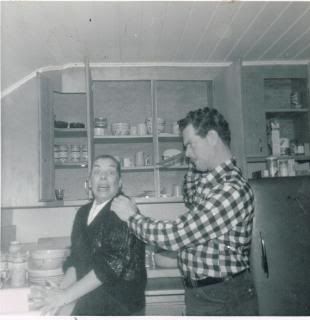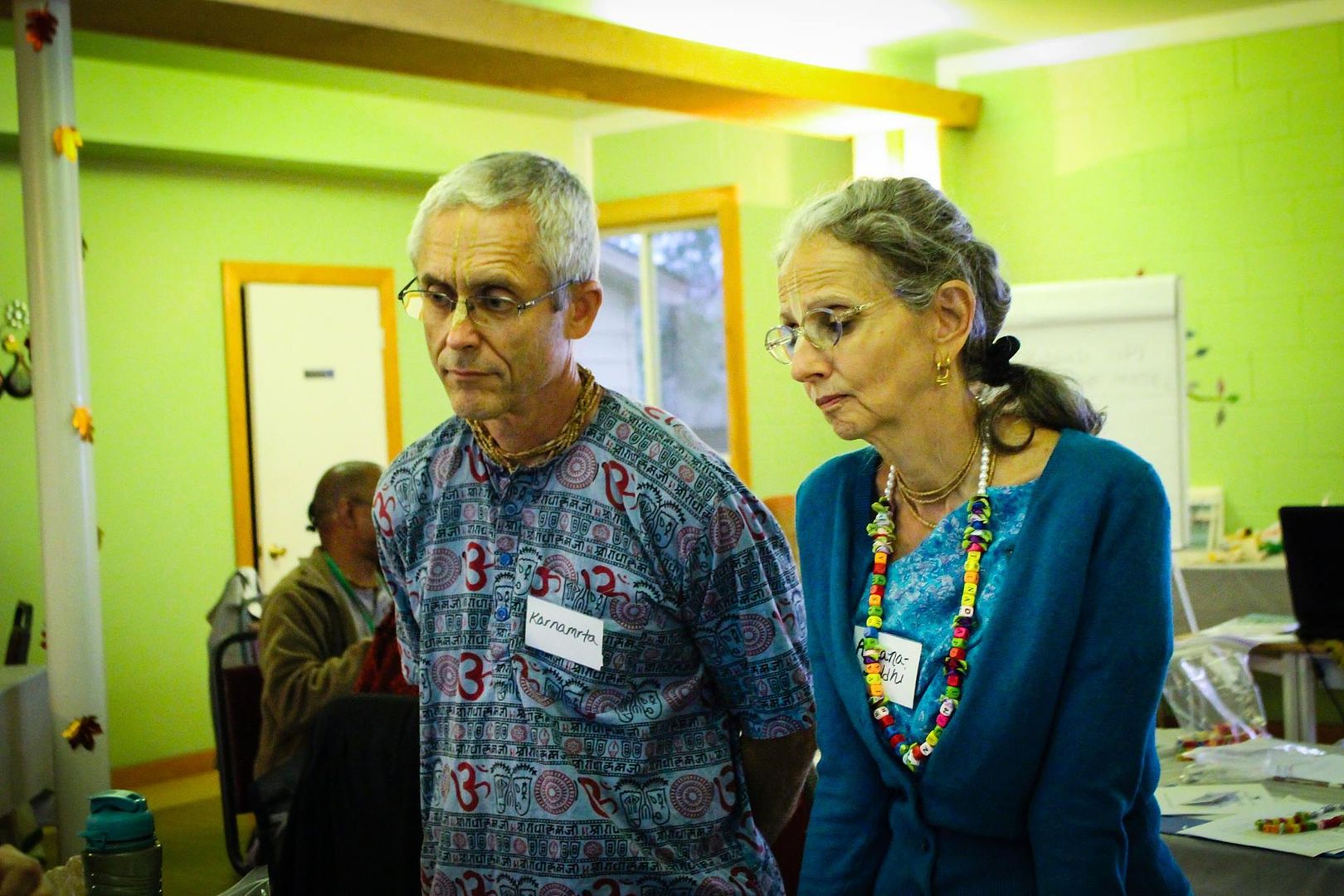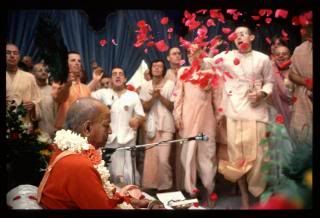Although anger sometimes has a positive use in motivating us to act or to fight for a righteous cause (like Arjuna and Hanuman) and give protection to the oppressed, anger is an energy that is usually criticized since it frequently has negative consequences. We are urged in Bhagavad Gita to control our anger, lest it get out of control and cause us to act in ways we may later regret. In the Bhagavatam there is the account of Dhruva Maharaja's anger. After he became king when his brother was killed by a yaksha, although he had heard from Lord Vishnu that his death was inevitable, Dhruva still became angry and killed many yaksha warriors unnecessarily, until he heard spiritual philosophy from Manu.
Because Dhruva was a great soul, he could also give up his anger in the face of reason and Vedic wisdom. We saw in Shrila Prabhupada that he would sometimes become angry to instruct someone to change, but that anger never stayed for long, and the incident that caused his anger would generally not be mentioned again. We find that many people are not able to do this and may get some secondary gain from remaining angry.
For example, in psychology the appearance of frequent anger in a person can alert us to look deeper to find the underlying causes or emotional wounds we would rather not look at or want to feel, like feeling worthless or ashamed of our past. In such an unfortunately mentality anger seems more desirable and motivating that our low self-concept.

My experience with anger is that my father was often angry and this was exacerbated by the intoxication of alcohol which also became his frequent state of mind. He had unexamined deep emotional wounds from his upbringing and his anger and intoxication felt better than how he generally felt about himself and his relationships with women. It was better to feel energized against someone else by anger, then depressed about his low self-worth.
Be that as it may, I naturally developed an aversion to anger, because its presence often preceded my pain from being yelled at, hit or slapped. I became hypervigilant to read people’s energy to determine if I was safe around them, and learned it was better to adapt to conditions than assert myself or my needs or react by anger.
As a youth I could rarely be provoked to fight. In grammar school there was some instinctive way of settling disputes between boys. We would go to a corner and yell and punch it out after school, and the boy who cried and gave up, lost. With me, it would often just be a pushing match, as I was not usually angry enough to really fight about something. In junior high (middle school), I was once refereeing a basketball game, and one person didn’t like my call. After the game he tried to provoke me to fight, by calling me names and pushing me. He even spit on me, but I would not indulge him, and he simply left.

As an adult, as part of my general emotional healing, I had to examine myself and a lot of repressed anger that I needed to process and let go of. Such repressed emotions can cause disease and depression. Part of my general personal growth work was to learn to feel and be as present in the moment as possible. I survived much of the pain of childhood by checking out or numbing myself so I wouldn’t feel hurt or betrayal etc. This emotional withdrawal was helpful to protect me in youth, but it also prevented me from feeling positive emotions and understanding the lessons or prompts from my emotions.
Today I still abhor anger, but due to my personal growth work, I am much better around it. In spite of all the work I have done on myself, I still can be emotionally withdrawn or not very excited about life. There are many systems both ancient and modern to assist in self-understanding. While Vedic astrology is a good process, it is complex and takes many years to understand. My wife and I, and a good number of devotees I know, have found another ancient system, The Enneagram, easier to digest and apply from a short study, though it can also take years to truly apply and understand it.
In my experience from studying the Enneagram I better understand my that current nature is more than just a reaction to my youthful conditioning. My tendency to be neutral, seek peace, avoid straining, difficulty, or anger is really part of my conditioned identity as an Enneagram Nine. My childhood trauma just brought it to the surface and helped me to survive.
Thus, I have come to some acceptance about my nature though I still endeavor to improve in my dealings with other people and work to be as present as possible. For everyone's conditioning there is always a good and bad aspect--we all have work to do. Understanding our conditioned nature is important for all us, acknowledging both our strengths and weaknesses, and those areas of ourselves we may avoid looking at. https://www.enneagraminstitute.com/
May we all do our best to improve through prayer, sadhana, introspection, and personal and spiritual growth work, and learn to act in the best way possible for everyone’s benefit, making our mind and conditioned nature our friend and not an adversary we struggle against. Sometimes professional help may be required.


Comments